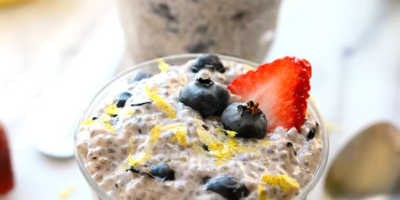Weight maintenance is a crucial phase for anyone who has successfully lost weight and is striving to keep it off long-term. It involves creating a weight maintenance program tailored to your individual needs, focusing on a balanced weight maintenance diet that promotes healthy weight management. Many people find that the tips for maintaining weight, such as regular exercise and mindful eating, are essential in this ongoing journey. Achieving weight stability techniques can help prevent the common pitfalls of regaining lost weight, ensuring that your efforts are not in vain. In this article, we will explore effective strategies and insights to help you navigate the often challenging road of weight maintenance.
When it comes to sustaining a healthy body weight, many terms come into play, such as weight stabilization and long-term weight control. This essential phase follows the weight loss journey, requiring individuals to adopt new lifestyle habits that promote ongoing wellness. Developing a personalized weight stability plan is vital, as it enables you to enjoy your favorite foods while maintaining your ideal weight. Key strategies for effective weight management include planning balanced meals and incorporating physical activity into daily routines. By understanding these concepts, you can successfully transition into the next chapter of your health journey, ensuring that your hard work pays off for years to come.
Weight Maintenance and Its Importance
Weight maintenance refers to the process of keeping your body weight stable after achieving your target weight. Unlike weight loss, which typically commands more attention, weight maintenance is often overlooked. Achieving a healthy weight is only half the battle; maintaining it requires a different set of strategies and a commitment to lifestyle changes. This phase is crucial because numerous studies indicate that a significant percentage of individuals who lose weight tend to regain it. Understanding the principles of weight maintenance can empower individuals to keep their weight off for the long term.
A weight maintenance program is not just about avoiding old habits but also about embracing new ones that support a balanced lifestyle. This involves adjusting your caloric intake to match your energy expenditure, incorporating regular physical activity, and adopting mindful eating practices. By establishing a solid foundation of healthy habits, you can improve your chances of achieving long-term weight stability and prevent the dreaded weight regain.
Creating an Effective Weight Maintenance Program
To create a successful weight maintenance program, it’s essential to evaluate your weight loss journey and identify effective strategies that worked for you. Start by determining your daily caloric needs based on your activity level and lifestyle. This will guide you in forming a sustainable diet plan that promotes weight stability. Participants in a weight maintenance program should not revert to restrictive dieting but rather incorporate moderation and balance into their meals. Healthy weight management is about learning to enjoy food while maintaining control over portions and choices.
Incorporate a variety of foods into your diet to ensure you receive all necessary nutrients. This means including an array of fruits, vegetables, whole grains, lean proteins, and healthy fats. A well-rounded diet contributes to overall health and supports weight maintenance. Additionally, keeping a food journal or using an app to track your meals can help you stay accountable and mindful of your eating patterns.
Tips for Maintaining Your Weight Successfully
One of the most effective tips for maintaining weight is to establish a regular eating schedule and stick to it. Skipping meals can lead to erratic hunger levels, making you more likely to overeat later. Instead, aim for three balanced meals and healthy snacks throughout the day to stabilize your metabolism and keep your energy levels steady. Additionally, employing the 80/20 rule allows you to indulge in your favorite treats without derailing your progress. By maintaining a balance of healthy eating 80% of the time and allowing for indulgences 20% of the time, you can achieve a sustainable approach to weight maintenance.
Regular physical activity is another key component of weight maintenance. Aim for at least 150 minutes of moderate-intensity exercise each week, such as brisk walking or cycling. Incorporating strength training exercises can also help build muscle mass, which boosts your metabolism. Remember, the goal is to find activities you enjoy, making it easier to stay consistent. Engaging in a mix of cardiovascular and strength training workouts can significantly enhance your efforts for healthy weight management.
The Role of a Weight Maintenance Diet
A weight maintenance diet is essential in supporting your journey towards achieving long-term weight stability. This type of diet focuses on consuming the right amounts of macronutrients—carbohydrates, proteins, and fats—while ensuring that you are not exceeding your caloric needs. Incorporating whole foods, such as vegetables, fruits, whole grains, and lean proteins, into your meals can help you feel satisfied and prevent cravings.
It’s important to remember that a weight maintenance diet is not a one-size-fits-all approach. Individual preferences, dietary restrictions, and lifestyle factors should all be considered when planning your meals. Sample meal plans can provide a helpful guideline, but you should feel empowered to make choices that align with your tastes and nutritional needs. Consulting a nutritionist can also provide personalized guidance tailored to your unique circumstances, ensuring that your diet remains both enjoyable and effective.
Overcoming Challenges in Weight Maintenance
Many individuals face challenges during the weight maintenance phase, including social situations that involve food, emotional eating, and the tendency to revert to old habits. Recognizing these hurdles is the first step in overcoming them. By developing strategies to manage cravings and maintain healthy boundaries during social events, you can stay on track. For instance, eating a healthy snack before attending a party can help reduce the temptation to overindulge.
Additionally, it’s vital to cultivate a positive mindset about food and weight management. Avoid labeling foods as ‘good’ or ‘bad,’ which can lead to guilt and unhealthy relationships with food. Instead, focus on balance and moderation, allowing yourself occasional treats without guilt. Remember, adopting a flexible approach will help you navigate the ups and downs of maintaining weight and foster a more enjoyable journey towards a healthier lifestyle.
The Importance of Regular Self-Monitoring
Regular self-monitoring is a crucial aspect of any effective weight maintenance program. This involves consistently tracking your weight and measurements, which can provide valuable insights into your progress. Weighing yourself weekly can help you identify any upward trends early on, allowing you to make adjustments before gaining significant weight. Similarly, keeping track of your waist, hip, and arm measurements can offer a more comprehensive view of your body composition.
Using a food diary or mobile app to log your meals can also enhance your awareness of eating patterns. By reflecting on your daily food intake and exercise, you can identify areas for improvement and maintain accountability. Regular self-monitoring fosters a proactive approach to weight management, enabling you to make informed choices that align with your weight maintenance goals.
Incorporating Exercise into Your Weight Maintenance Routine
Exercise plays a vital role in weight maintenance, as it helps to burn calories and prevent weight regain. Incorporating both aerobic and strength training exercises into your routine can provide numerous benefits, including improved metabolism and enhanced overall health. Aim for a mix of activities you enjoy, such as walking, swimming, cycling, or group fitness classes, to keep your workouts engaging and sustainable.
Additionally, finding ways to stay active throughout your day can contribute to your weight maintenance efforts. Simple changes, such as taking the stairs instead of the elevator or walking during your lunch break, can add up over time. Remember, the key is consistency—making physical activity a regular part of your life can significantly impact your ability to maintain weight stability.
The Benefits of Staying Hydrated During Weight Maintenance
Hydration is often overlooked in weight maintenance, yet it plays a crucial role in overall health and weight stability. Drinking sufficient water helps regulate appetite, aids digestion, and supports metabolism. Aim to drink at least 2 to 3 liters of water daily, adjusting based on your activity level and climate. Keeping a water bottle handy can serve as a reminder to stay hydrated throughout the day.
Additionally, consuming water before meals can create a sense of fullness, potentially leading to reduced caloric intake. Incorporating hydrating foods, such as fruits and vegetables, into your meals can also contribute to your daily hydration goals. By prioritizing hydration, you can support your weight maintenance efforts and overall well-being.
Building a Support System for Weight Maintenance
Having a supportive network plays an essential role in maintaining weight. Surrounding yourself with friends, family, or a community of individuals who share similar health goals can provide motivation and encouragement. Engaging in group activities, such as exercise classes or healthy cooking workshops, can foster a sense of accountability and make the process more enjoyable.
Consider joining online forums or local support groups focused on weight maintenance, where members can share tips, experiences, and challenges. By building a support system, you create an environment conducive to success, which can help you navigate the ups and downs of weight management more effectively.
Frequently Asked Questions
What does weight maintenance mean?
Weight maintenance refers to the phase after reaching your target weight where you focus on keeping that weight stable. This involves adopting a balanced approach to eating and lifestyle, ensuring that the habits developed during weight loss are continued to prevent regaining lost pounds.
How is a weight maintenance program created?
A weight maintenance program is created by continuing the healthy eating habits from your weight loss diet while allowing for some flexibility. This includes portion control, regular meals, and incorporating physical activity, ensuring you don’t revert to old habits.
When should a weight maintenance program start?
A weight maintenance program should begin immediately after you reach your target weight. Starting your maintenance diet right away helps prevent the common tendency to revert to unhealthy eating habits that can lead to weight regain.
How long does a weight maintenance program last?
A weight maintenance program should ideally be ongoing. Major milestones include maintaining your weight for at least six months initially, and if you keep it stable for two years, you are likely to maintain it for life.
What should I do to keep my weight stable?
To keep your weight stable, follow the 10 tips for maintaining weight, including balancing your meals, regular exercise, monitoring your weight, and being mindful of portion sizes and food choices.
What are 10 tips for weight maintenance?
1. Learn to balance your diet; 2. Don’t skip meals; 3. Plan meals in advance; 4. Exercise regularly; 5. Weigh yourself regularly; 6. Keep yourself accountable; 7. Ensure good sleep quality; 8. Stay hydrated; 9. Don’t fear eating out; 10. Believe in yourself and your ability to maintain your weight.
Can you lose weight on a maintenance diet?
Yes, you can lose weight on a maintenance diet if you consume fewer calories than you burn, paired with healthy food choices and portion control.
What can you eat while maintaining weight?
While maintaining weight, you can eat a variety of foods as long as you keep portion sizes in check. It’s essential to balance your meals and include fruits, vegetables, lean proteins, and whole grains.
Why is the weight maintenance period difficult?
The weight maintenance period can be challenging because it requires you to make conscious decisions about food without a strict plan. Learning to balance indulgences with healthy choices is crucial.
What should be considered in a weight maintenance program?
Key considerations in a weight maintenance program include maintaining balance in your diet, increasing vegetable and protein intake, avoiding high-fat foods, and staying active.
When does weight stabilize?
Weight stabilizes when you maintain the same weight for six months. Continued stability for two years indicates that you can keep your weight for life.
How many calories should be consumed during weight maintenance?
Caloric needs vary by individual, but generally, women should consume between 1400-2000 calories and men between 1800-3000 calories daily for weight maintenance.
Can you indulge during a weight maintenance program?
Yes, you can indulge during a weight maintenance program. It’s essential to enjoy your favorite foods in moderation while maintaining overall balance in your diet.
| Topic | Key Points |
|---|---|
| What is Weight Maintenance? | A necessary phase after weight loss to prevent regaining weight. |
| Creating a Maintenance Program | Continue healthy habits developed during weight loss; avoid reverting to old habits. |
| Starting a Maintenance Program | Immediately after reaching target weight to avoid returning to old habits. |
| Duration of Maintenance Program | Maintain weight for at least 6 months; 2 years ensures lifelong maintenance. |
| Keeping Weight Stable | Follow 10 tips and a balanced diet plan. |
| 10 Tips for Weight Maintenance | Learn balance, don’t skip meals, plan meals, exercise, weigh regularly, stay accountable, focus on sleep, hydrate, enjoy dining out, and believe in yourself. |
| Diet Plan Example | Sample 1-week diet plan including balanced meals. |
| FAQs about Weight Maintenance | Address common concerns like losing weight on a maintenance diet, flexibility, and calorie needs. |
Summary
Weight Maintenance is essential for those who have achieved their ideal weight and want to keep it off. After the effort of losing weight, it is crucial to transition into a maintenance program that focuses on balance and healthy habits. This ensures that the weight loss is not temporary and promotes long-term stability. By adhering to a structured approach that includes mindful eating, regular exercise, and self-accountability, individuals can enjoy their favorite foods without the fear of regaining weight. Remember, successful weight maintenance is about finding a sustainable lifestyle that allows for indulgence while keeping overall health in check.















Comments